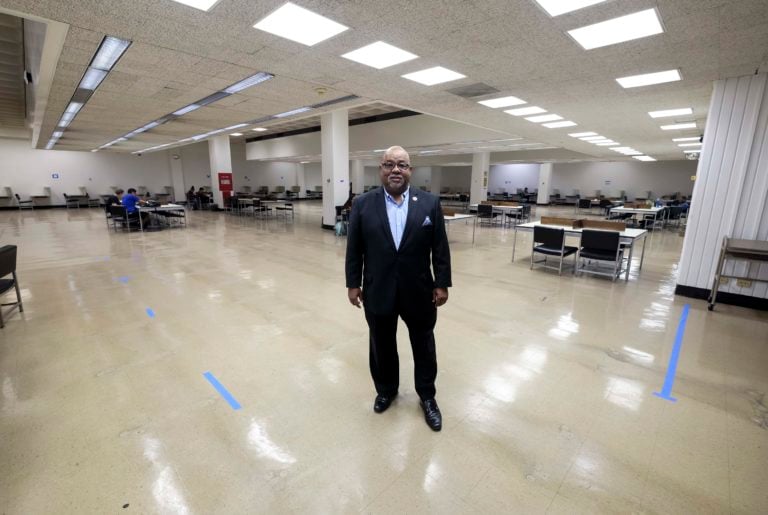
The Innovation Incubator California State University Dominguez Hills is graduating – to a bigger home.
The entity operated out of a classroom within the university’s administration building for its first year, but it’s new home will be a larger space in the library.
The new, 3,000-plus-square-foot space on the second floor will allow the space to house a few of the enrollee companies for the first time – something that many other business incubators do. A tentative move-in date is set for the second quarter.
That space may also be temporary, according to Gary Polk, the interim executive director of the incubator, and it may eventually move to a proposed new building on campus potentially devoted to business studies. It also is slated to receive $250,000 in funding from the university the next academic year.
The marketing strategy for the incubator itself calls for an emphasis on a niche of growing young companies that have made it part of their business plans to give back to local communities.
Polk said he was searching for a target market for the new incubator last spring after it had launched with $40,000 in university funding in January. Then he attended three social entrepreneur events that all occurred within two weeks.
“After attending the third social entrepreneur event, I realized that this focus of ‘Doing well by doing good’ is what could differentiate our incubator from all the others out there,” Polk said.
It also made sense, he said, with the university’s location in Carson, not far from some of the poorer communities in the county.
Doing good
Most business incubators aim to transform startups into profit-makers for their shareholders.
Roughly two-thirds of the first 20 businesses enrolled in the Innovation Incubator’s year-long program at Cal State Dominguez Hills include a social commitment within their mission.
That reflects the growing trend among entrepreneurs worldwide to have social, environmental or community objectives as part of their businesses, according to a 2016 study by American University in Wash., D.C. Its Social Enterprise Report found that 5.75 percent of the U.S. population was involved in social startups, and 3.2 percent of the global population.
One of Innovation Incubator’s social entrepreneurs is Hollywood-based LumaForge Inc., which makes computer storage hardware that can be accessed simultaneously by multiple users at film editing shops.
Sam Mestman, chief executive and co-founder of LumaForge, said he and his 12 employees spend some of their time teaching high school students the art of filmmaking.
“We want to help young people create better content,” he said.
Mestman said he learned about the Cal State Dominguez Hills incubator from a consultant he hired to bring more financial discipline and know-how to the business.
“We had the product, but we had some basic questions about the direction we wanted to take the business in and about the financing and bank relationships,” Mestman said.
LumaForge had already been in business for 18 months, which means it qualified for the business accelerator program at the incubator. The program provides courses and monthly meetings mostly geared toward helping businesses better handle their finances.
Incubators focus on one to five-year-old startups and provide working space, seed money, mentoring and training; while accelerators assist more established companies and additionally provide investor connections among other assistance. Some take exchange for small equity amounts in the growing business, but not Innovation Incubator.
There are 32 incubators and 33 accelerators exist in the county, according to the Los Angeles County Economic Development Corp., with some overlap between them. There are two incubators and four accelerators in the South Bay area that surrounds CSU Dominguez Hills.
Mestman said the one-time $300 accelerator fee – it’s $100 for the incubator – and investment in time more than paid off. Through contacts he made while there he secured $350,000 in financing.
Education also the social entrepreneurship mission at Boyle Heights Chilli Sauce Co., which makes a chili sauce known as El Machete. Chief Executive and Founder Oscar Ochoa said he sets aside some of the profits from sales of the sauce to sponsor arts education programs at local schools.
Ochoa, who had previously worked with Polk when he was a program supervisor at Cal State Dominguez Hills, said Polk encouraged him to enroll in the incubator program last spring. Ochoa’s company is set to graduate from the incubator program in the spring.
“The biggest value for me so far has been realizing that I needed a more strategic approach to financing rather than the bootstrap approach I had been taking,” Ochoa said. “I realized I need some up-front financing so that I could have the equipment to handle larger orders and scale up the business.”
